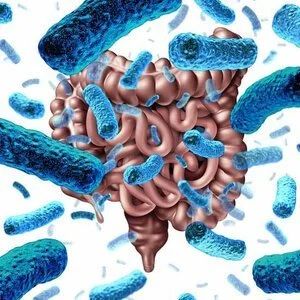The Stomach Acid Dilemma - Too High or Too Low?
What are the symptoms of too much acid in the stomach?
We often attribute stomach symptoms like nausea, indigestion, reflux, tummy cramping and more on excess stomach acid.
In fact, there is an abundance of over the counter medications exactly for these symptoms.
When these don't work, we get prescribed an acid blocker, usually belonging to a class of drugs called proton pump inhibitors like Omeprazole, Lansoprazole and so on.
What if I told you your symptoms could also be due to low stomach acid?
If you are thinking this is definitely against logic, I don’t blame you.
To understand stomach acid, it is important to understand a bit more about how the stomach works.
Digested food from the mouth travels down the oesophagus which is propelled down aided by its muscular walls into the stomach.
Once in the stomach, gastric juices are secreted, containing hydrochloric acid (HCL) and the enzyme pepsin among others.
HCL makes the stomach environment acidic, while the enzyme pepsin mainly breaks down proteins into smaller units called amino acids. (The term pH is usually used to denote the degree of acidity, with a low pH meaning more acidic, and high pH meaning less acidic)
Once the acidity in the stomach is high enough, two things happen:
A tightening at the junction of the stomach and the oesophagus called the oesophageal sphincter closes, while another tightening at the junction of the stomach and first part of the small intestine or ileum called the pyloric sphincter opens.
This systematic opening and closing of these sphincters dependent on the degree of acidity prevents stomach acid and food from going the wrong direction and irritating the oesophagus and beyond.
Now, if the stomach environment is not acid enough, the oesophageal sphincter occasionally remains open, and the small amount of acid in the stomach goes the other way.
This can potentially cause the classic symptoms above of nausea, indigestion, reflux, cramping, bloating and more.
In essence, it can be quite difficult to distinguish based on symptoms if you have a low or high stomach acid.
If your symptoms are controlled by taking a proton pump inhibitor, then there is no need to stop.
However, if you find you are getting no benefit from them, then it might be worth supplementing with a good quality acid supplement like Betaine HCL-I recommend one in combination with the enzyme pepsin.
If however, you are known to have an ulcer or gastric erosions, then stay clear of stomach acid, as this can lead to severe adverse effects.
Please feel free to contact me at www.guthealthmedic.co.uk for any questions you may have.
Dr. Leke Asong
Gut Health Medic
TAGGED:
stomach acid / digestive system / low stomach acid / high stomach acid / indigestion / bloating











